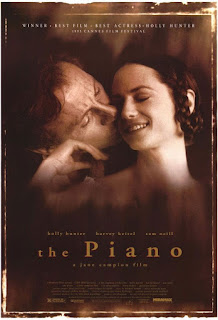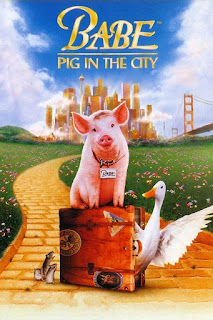September 2nd: ASHES OF TIME Redux (Wong Kar-Wai, 1994/2008)
NOTE: This film will be projected in the high-definition Blu-ray format.
In ancient China, an lovelorn mercenary tells tales of the bounty hunters and swordsmen he comes into contact with.
Hong Kong's film industry was the third largest in the world (behind India and the United States), known for populist genre fare in comedy, martial arts/wuxia, and crime actioners. Writer-director Wong Kar-Wai came onto the scene in the late 1980s and within ten years became one of the most critically-acclaimed arthouse filmmakers in the world.
For his third film, Wong stepped away from urban culture for a loose adaptation of a famous wuxia trilogy of novels set far in the past and in a rural region. What set his approach apart from his contemporaries and forbearers are what would become his trademark aesthetic: the existential thoughts of shifting narrators, a dream-like sense of nostalgia, and heady, expressionistic visuals.
The film was shot mostly on location in Northern China, closer to Mongolia and parts of the Great Wall. Wong would improvise with his actors heavily, writing much of the script as they went along. In addition, he structured his story episodically and desired a repeated changing of seasons, causing the shoot to last over a year, long enough for a fellow director to shoot a musical comedy version concurrently with the same cast and crew.
The cast is a who's who of Hong Kong stars and frequent Wong collaborators: Leslie Cheung, Tony Leung (In The Mood For Love), Jacky Cheung, Brigitte Lin, Carina Lau, and Maggie Chung. The fights were choreographed by local cinema legend Sammo Hung.
Behind the camera is Wong's most celebrated collaborator, Australian cinematographer Christopher Doyle. Also essential is William Chang, who not only designed the production and costumes, but also helped edit the film. The post-production exhausted Wong to the point where he wrote, directed, and released the international hit Chungking Express before Ashes Of Time was completed.
A failure at the box office, the film gained a small cult following as Wong's stature grew. Years later, he was forced to relocate the storage of the original negative, and found it in a heavily damaged state. During the long restoration process, Wong altered the film's structure, added new music (with the help of acclaimed cellist Yo-Yo Ma), and tweaked the color palette of the images. The Redux version debuted at the Cannes Film Festival in 2008 to mostly positive reviews.
Running time is approx. 90 minutes.
In ancient China, an lovelorn mercenary tells tales of the bounty hunters and swordsmen he comes into contact with.
Hong Kong's film industry was the third largest in the world (behind India and the United States), known for populist genre fare in comedy, martial arts/wuxia, and crime actioners. Writer-director Wong Kar-Wai came onto the scene in the late 1980s and within ten years became one of the most critically-acclaimed arthouse filmmakers in the world.
For his third film, Wong stepped away from urban culture for a loose adaptation of a famous wuxia trilogy of novels set far in the past and in a rural region. What set his approach apart from his contemporaries and forbearers are what would become his trademark aesthetic: the existential thoughts of shifting narrators, a dream-like sense of nostalgia, and heady, expressionistic visuals.
The film was shot mostly on location in Northern China, closer to Mongolia and parts of the Great Wall. Wong would improvise with his actors heavily, writing much of the script as they went along. In addition, he structured his story episodically and desired a repeated changing of seasons, causing the shoot to last over a year, long enough for a fellow director to shoot a musical comedy version concurrently with the same cast and crew.
The cast is a who's who of Hong Kong stars and frequent Wong collaborators: Leslie Cheung, Tony Leung (In The Mood For Love), Jacky Cheung, Brigitte Lin, Carina Lau, and Maggie Chung. The fights were choreographed by local cinema legend Sammo Hung.
Behind the camera is Wong's most celebrated collaborator, Australian cinematographer Christopher Doyle. Also essential is William Chang, who not only designed the production and costumes, but also helped edit the film. The post-production exhausted Wong to the point where he wrote, directed, and released the international hit Chungking Express before Ashes Of Time was completed.
A failure at the box office, the film gained a small cult following as Wong's stature grew. Years later, he was forced to relocate the storage of the original negative, and found it in a heavily damaged state. During the long restoration process, Wong altered the film's structure, added new music (with the help of acclaimed cellist Yo-Yo Ma), and tweaked the color palette of the images. The Redux version debuted at the Cannes Film Festival in 2008 to mostly positive reviews.
Running time is approx. 90 minutes.










Comments
Post a Comment